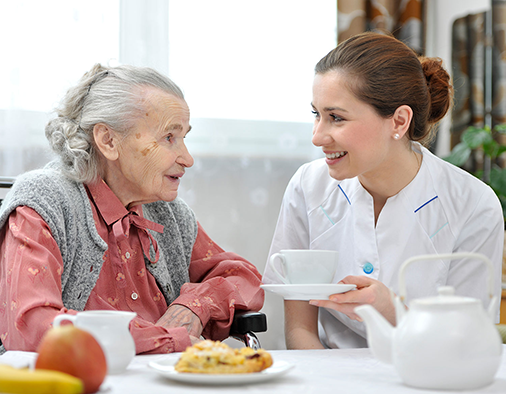Overview
Personal Care Assistants provide assistance to elderly, disabled, ill, and mentally disabled persons who live in their own homes or in a residential care facility. Some Personal Care Assistants work with families in which a parent is incapacitated and small children need care. Others help discharged hospital patients who have relatively short-term needs. The Bureau of Labor states that the Personal Care Assistant is projected to be the fastest-growing occupation through 2018. Numerous job openings with excellent opportunities are expected. Job opportunities will be prevalent in hospitals, clinics, rehabilitation centers, home care, longterm care facilities, hospice, and assisted living facilities. Personal Care Assistants can be in the form of paid employees who come into the home for a few hours a day or who live in the home fulltime or can be family members or friends of the resident.
This comprehensive program prepares students for a position as a Personal Care Assistant. Emphasis is on giving personal care in a client's home, communications, working with ill persons, basic human needs, eldercare, nutrition, special diets, and home management. Many different types of individuals require assistance in daily tasks, assistance with minor medical tasks, and companionship because they are ill, elderly, or disabled in some way, maybe of any age, and must live at home or in a home-like residential facility. Personal Care Assistants provide this assistance or provide some of the care to allow family caregivers a respite. This program will ensure students are prepared to provide a variety of essential services for their clients including health care management and monitoring, assistance with activities of daily living (ADLs) ranging from bathing, dressing, eating, using the bathroom, housekeeping and laundry to medication reminders and/or management, recreational activities and companionship, security and transportation.
Program Objectives
After completing this program, learners will be able to:
- Describe long-term care in terms of the target populations, environment, care options
- Describe the physiological, psychological, and sociological changes related to aging
- Describe physical, cognitive, and social growth and development characteristics
- Describe memory care needs and options
- Explain proper procedures for infection control in a home or residential environment
- Perform basic housekeeping procedures and safety for residents, staff, and visitors
- Explain procedures and strategies for planning, purchasing, and serving food
- Explain the proper procedures for safely assisting an individual in activities of daily living
- Explain procedures for preventing fluid overload and dehydration
- Explain proper procedures for applying a variety of warm and cold applications
- Explain procedures involved in caring for individuals with special needs
- Describe effective and appropriate care of an individual who is dying
- Explain proper care for infants and children in the home or residential setting
- Explain how to assist individuals in a home or residential environment
- Explain common preoperative and postoperative care procedures
Certifications
- Students should have or be pursuing a high school diploma or GED.
- National Certification exam that is available to students who successfully complete this program:
- National Healthcareer Association (NHA) Certified Clinical Medical Assistant (CCMA) Exam
*NOTE: May vary based on education grant that will be used
